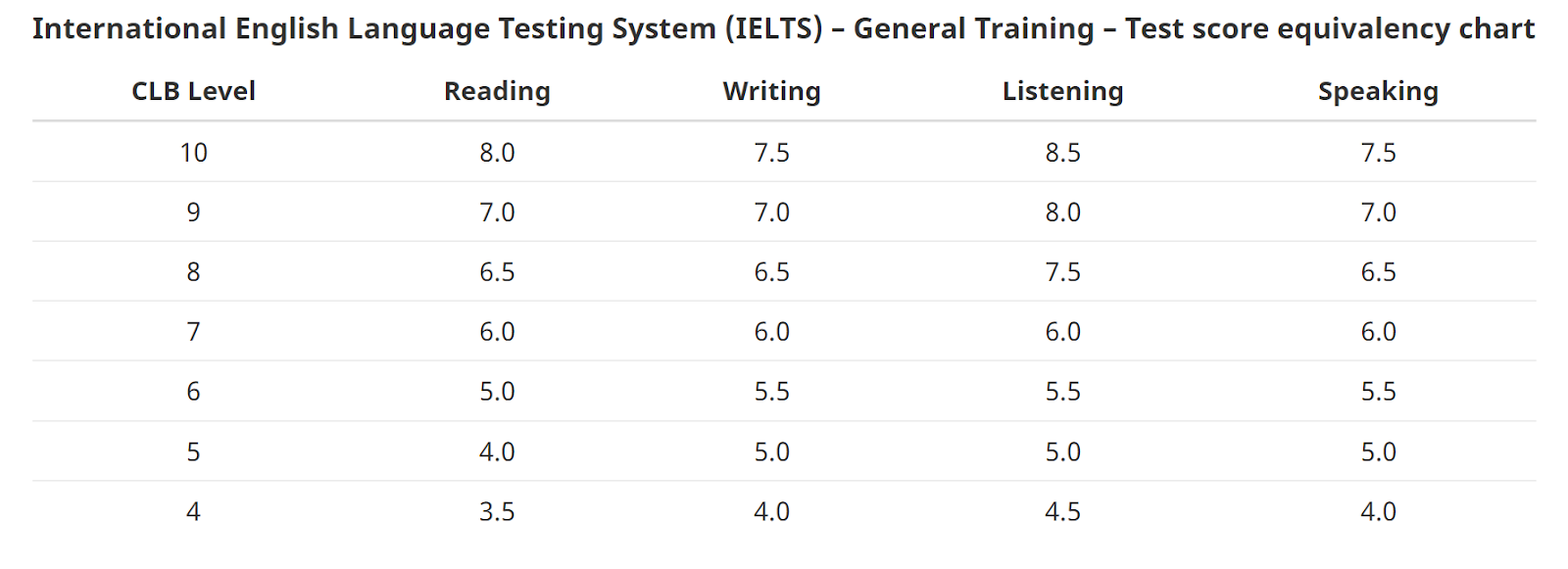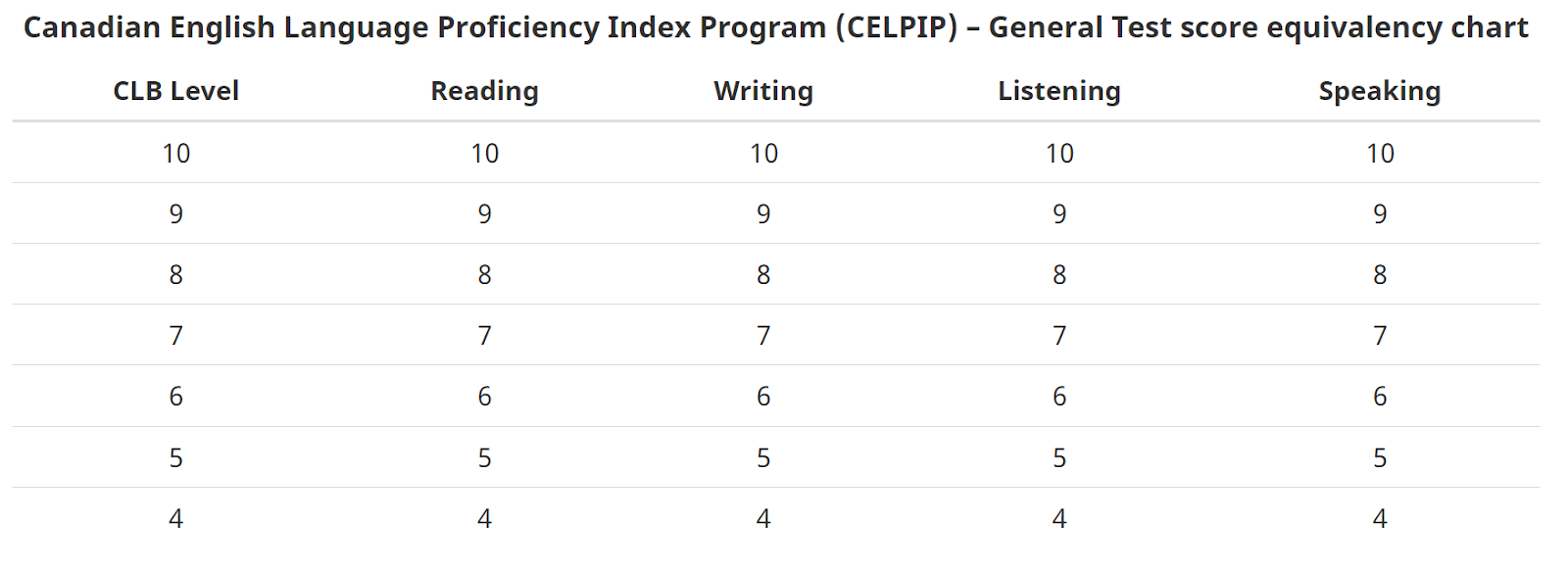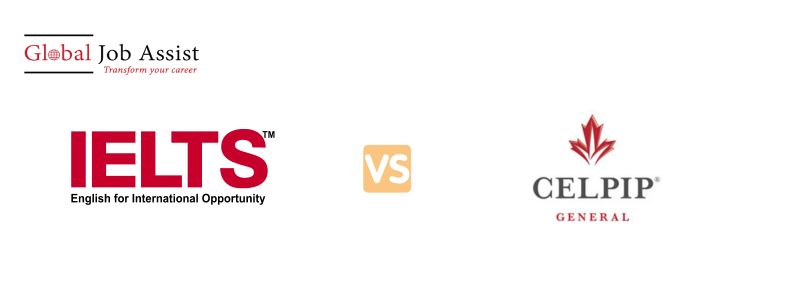Choosing the right English language proficiency test is essential for students, immigrants pursuing citizenship, and professionals aiming to enhance their prospects. This article delves into the nuances of CELPIP and IELTS, shedding light on their differences and key components. If you fall into any of these categories and seek clarity on which test suits you best, this article is your go-to guide
IELTS:
IELTS (International English Language Testing System) is a globally standardized exam evaluating English proficiency for non-native speakers. Recognized by 10,000+ institutions worldwide, including universities, employers, and immigration authorities.
-
Types: Academic (for university) & General Training (for work/migration)
-
Format: Listening, reading, writing, speaking sections
-
Scores: Range 1-9, average 7 for Canadian universities
-
Cost: Varies by country (India: ₹14,000-₹15,000)
-
Registration: Online or via the test centre
-
Preparation: Books, online courses, practice tests
CELPIP
The Canadian English Language Proficiency Index Program (CELPIP) assesses English proficiency, accepted by Immigration, Refugees and Citizenship Canada (IRCC) and Canadian organizations.
-
Accepted by: IRCC and other Canadian organizations.
-
Types of Tests: CELPIP-General (work/immigration) & CELPIP-General LS (limited settings).
-
Test Structure: Listening, reading, writing, and speaking sections.
-
Scoring Scale: Scores range from 1 to 12, with 8 as the average for international students applying to Canadian universities.
-
Cost: Test cost varies by country (₹11,000-₹12,000 in India).
-
Registration: Online or through CELPIP test centres.
-
Preparation: Resources include books, online courses, and practice tests.
In Canada, the CELPIP holds official recognition as the English-language test of choice. It's embraced by key governmental programs including Permanent Resident Status, Canadian Citizenship, and pathways like Canadian Experience Class (CEC), Federal Skilled Trades Program (FSTP), and Federal Skilled Worker Program (FSWP).
Additionally, the CELPIP is accepted by numerous universities, colleges, vocational programs, and professional bodies across the country. Discover the full list of institutions that welcome CELPIP scores here.
Comparing the differences between IELTS and CELPIP:
|
Aspect |
IELTS |
CELPIP |
|
Full Form |
International English Language Testing System |
Canadian English Language Proficiency Index Program |
|
Conducted by |
British Council, IDP, Cambridge Assessment |
Paragon Testing Enterprises |
|
Accepted by/for |
Worldwide (education, immigration, work) |
Canada (immigration, citizenship, work) |
|
Types of Tests |
Academic, General Training |
General, General LS |
|
Who Should Take |
Students, professionals, immigrants |
Immigrants, citizenship applicants |
|
Eligibility |
No specific eligibility requirements |
No specific eligibility requirements |
|
Test Structure |
Listening, Reading, Writing, Speaking |
Listening, Reading, Writing, Speaking |
|
Test Format |
Paper-based or Computer-based |
Computer-based |
|
Test Score Range |
0-9 band scale |
0-12 level scale |
|
Cost (INR, 2023) |
₹16,250 |
₹10,845 |
|
Exam Duration |
Around 2 hours and 45 minutes |
Around 3 hours (General), 1 hour (General LS) |
|
Best Score for Admission |
Varies by university and program |
Varies by university and program |
|
Score Validity |
2 years |
2 years |
|
Retake Frequency |
Unlimited (within 90 days) |
Unlimited (between tests) |
|
Retake Waiting Time |
60 days |
30 days |
|
Time to get results |
13-17 |
15-20 |
|
Official Website |
CELPIP and IELTS Score Chart
IELTS General Training Test Score Equivalency Chart

CELPIP General Test Score Equivalency Chart

Source: Canada.ca
CELPIP and IELTS Test Structure
Table for the key components of the CELPIP and IELTS tests
|
Test Component |
CELPIP |
IELTS |
|
Score Breakdown |
The score of 1-12 per section, calibrated against CLB levels |
The score of 1-9 per section, whole or half bands |
|
Listening |
47-55 minutes; 7 components, 40-46 questions (40 scored) |
30 minutes; 4 components, 40 questions |
|
Details |
Test times include transition times |
Test times exclude transition times |
|
Reading |
55-60 minutes; 4 components, 38-45 questions (38 scored) |
60 minutes; 3 components, 40 questions |
|
Details |
Two unscored items are used for test development |
One unscored item is used for test development |
|
Writing |
53-60 minutes; 2 components: Email, Responding to Survey |
60 minutes; 2 components: Letter, Writing Task |
|
Details |
The email component is scored on grammar, vocabulary, and organization |
The letter component is scored on grammar, vocabulary, and organization |
|
Speaking |
15-20 minutes; 8 components, 8 short-answer questions |
11-14 minutes; 3 components: Introduction, Individual Speech, Two-Way Discussion |
|
Details |
Two unscored items are used for test development |
One unscored item is used for test development |
|
Test Format |
Computer-based |
Paper-based or computer-based |
|
Unscaled Items |
Listening and Reading sections may have unscored items used for test development |
Listening and Speaking sections may have unscored items used for test development |
Which test is right for me IELTS vs CELPIP?
Choosing the right test depends on your goals and circumstances. Here's a concise overview:
For Canada-bound:
-
Study/Work in Canada: Choose CELPIP.
-
Accepted by IRCC and Canadian organizations.
-
Focus on Canadian English, suitable for Canadian living.
For International Options:
-
Study/Work Abroad: Opt for IELTS.
-
Recognized by 10,000+ global institutions.
-
Emphasizes international English, fitting for non-Canadian destinations.
Benefits of IELTS and CELPIP:
Benefits of choosing the IELTS test:
-
Widely accepted worldwide.
-
Abundant practice resources.
-
Available in more countries.
Note: IELTS is also accepted in Canada for a variety of purposes, including study, work and immigration.
Benefits of choosing the CELPIP Test:
-
Tailored for the Canadian context.
-
Computer-based format.
-
Shorter test durations.















